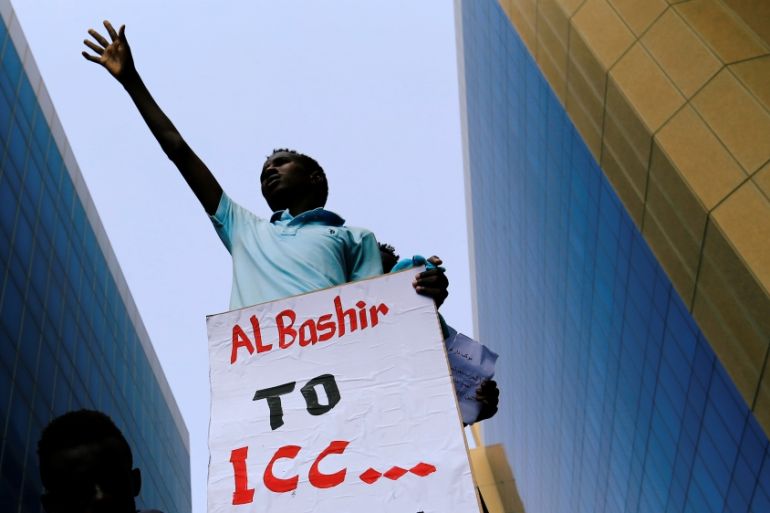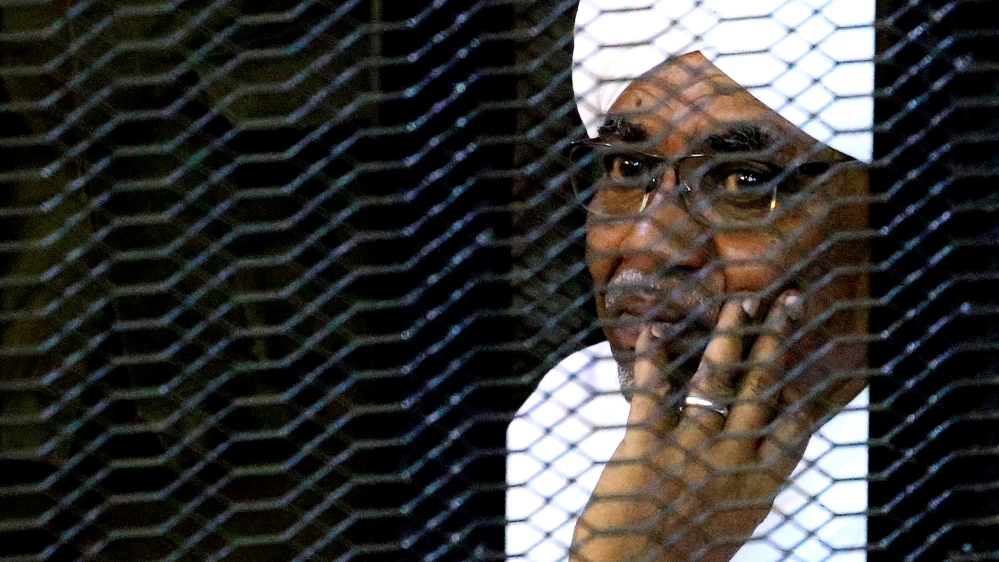Sudan agrees those wanted by ICC should appear before court
Announcement comes as Sudanese transitional authorities and Darfur rebel groups hold talks in South Sudan’s Juba.

Sudan‘s transitional authorities and rebel groups from Darfur have agreed that those wanted by the International Criminal Court (ICC) for crimes in the region should appear before the tribunal, officials have said.
The announcement was made on Tuesday in Juba, the capital of neighbouring South Sudan, where the two sides are engaged in peace talks.
Keep reading
list of 4 itemsThe Take: Are Israeli officials under threat of ICC prosecution?
Why would Israel and its allies fear the ICC?
Israeli officials eye threat of ICC arrest warrants over war in Gaza
More:
“We can only achieve justice if we heal the wounds … and we cannot escape from facing these … without the appearance of those against whom arrest warrants were issued by the International Criminal Court,” Mohamed Hassan al-Taishi, a member of Sudan’s sovereign council, told reporters.
Former president Omar al-Bashir, who was overthrown after mass protests last year, is wanted by the ICC, but his name was not mentioned in the statement. Government officials also told news agencies that al-Bashir and other suspects would be handed to the ICC for alleged war crimes in Darfur.
It was not specified when the decision would be carried out, and there was no immediate comment by the ICC.
‘Key demand’
Al-Bashir was sentenced in December by a court in the capital, Khartoum, to two years’ detention in a correctional centre for corruption in the first of several cases against him. He also faces trials or investigations over the killing of protesters and his role in the 1989 coup that brought him to power.
The government and rebels in late January agreed to establish a special court to prosecute those accused of carrying out war crimes and crimes against humanity in Darfur. Al-Taishi said he expected the joint committee tasked with drafting the tribunal’s provisions to soon finish its work.
Sudan’s transitional government has pledged to establish peace in conflict-hit regions, including Darfur, and has restarted talks with rebel groups.
“Since talks started between the transitional administration and the rebel groups, handing over the former president has been a key demand to reach a comprehensive agreement,” Al Jazeera’s Hiba Morgan, reporting from Khartoum, said.
“While the transitional government had previously said handing him over was to be left to an elected government, it seems like they had to make concessions, otherwise the talks would have reached a deadlock.”

Darfur crimes
Conflict spread in Darfur in 2003 after mostly non-Arab rebels rose up against Khartoum.
Government forces and mainly Arab militias mobilised to suppress the revolt were accused of widespread atrocities.
An estimated 300,000 people were killed and 2.7 million driven from their homes.
West Darfur had been largely calm since 2010, though there have been occasional skirmishes over the past three years.
Violence in the West Darfur region in January has killed at least 65 people and wounded more than 50, as well as displacing thousands, according to an international peacekeeping mission.
Following Tuesday’s announcement, one of al-Bashir’s lawyers was quoted as saying by Reuters news agency that the 76-year-old refuses to deal with the international tribunal which he denounced as a “political court”.
Bashir has said the allegations made by the ICC, the world’s first permanent court for prosecuting war crimes, are part of a Western conspiracy.
The Hague-based ICC opened its investigation into Darfur in June 2005, following a referral to the court by the United Nations Security Council.
It issued arrest warrants for Bashir in 2009 and 2010 over his alleged role in war crimes including genocide in Darfur province, which he denies.
Along with al-Bashir, the ICC indicted two other senior officials: Abdelrahim Mohamed Hussein, who was interior and defence minister during much of the conflict, and Ahmed Haroun, a senior security chief at the time who last month was named by al-Bashir to run the ruling National Congress Party.